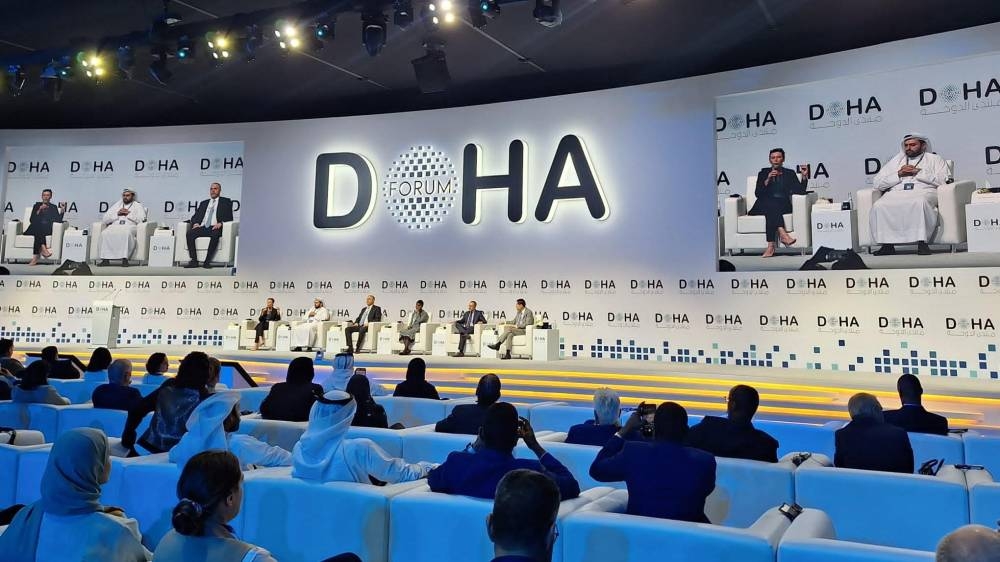HE Minister of State at the Ministry of Foreign Affairs Dr. Mohamed bin Abdulaziz bin Saleh al-Khulaifi stressed the necessity of immediate ceasefire in the Gaza Strip as a top priority, pointing out that Qatar has been working to achieve this matter in co-operation and co-ordination with various parties.
In a session entitled "Palestine Has Become a Global Crisis — Does It Have a Global Solution" within the activities of the Doha Forum 2023, Dr. al-Khulaifi called on the international community and international stakeholders to assume their responsibilities and do more in that regard to reach a permanent end to the war on the Gaza Strip and provide relief and humanitarian aid to the citizens.
He said that since the early hours of the aggression on the Gaza Strip, Qatar began its work by forming a specialised work team to supervise important issues and cooperate with the international community to limit the expansion of the circle of conflict and avoid aggravation and escalation of the situation. Dr al-Khulaifi indicated that any escalation, whether major or small, would complicate the mediation efforts aimed at finding a solution to that issue.
"Qatar has worked to convey this message, communicated with a large number of regional and international countries, and spoken with everyone, including the US and Iran."
He stressed the need to be cooperative and transparent in discussing all elements related to the ongoing developments in the Gaza Strip to avoid any intervention that might escalate the situation.
In his speech, HE al-Khulaifi reiterated that the Palestinian issue occupies a very important place on Qatar's agenda for international relations, and has priority in global affairs, pointing out that Qatar contributes, along with the international community, to supporting and assisting the fraternal Palestinian people there, and would continue to do so.
He said that Qatar was clear in providing humanitarian aid to the Palestinian people in the Gaza Strip and establishing the infrastructure there in direct coordination with international partners, including the UN, adding that it is Qatar's commitment and duty towards the brothers in Palestine and Qatar would continue to do so.
Regarding the post-war scenario, he affirmed that Qatar would never evade its responsibilities in helping the Palestinian brethren, stressing that Qatar would do so in an organised manner as it did in co-operation with the regional and international partners, and would support the infrastructure, healthcare, and education there, which is the same role it plays with a number of regional countries and not only Gaza.
He considered that it is very important to deal with the current situation by finding a solution to what is happening in the Gaza Strip, especially when it comes to the political solution to the Palestinian issue that Qatar calls for, as there must be a ceasefire, which is the duty of the Security Council, which failed to implement despite the Secretary-General's activation of Article 99 of the UN Charter.
In turn, the speakers at the session stressed that the post-war scenario cannot be talked about without a comprehensive ceasefire in the Gaza Strip, because the situation is unbearable in light of the continued mass killing and complete destruction of facilities and infrastructure in most of the Strip, whether schools, hospitals, universities, and archaeological buildings. They pointed out that the world is facing an unprecedented crisis in peacemaking and the wrong use of the right of veto. They consider that the Security Council has become more impotent and that the Gaza crisis has made this impotence more evident.
They also underscored that the situation would deteriorate further if the world tolerated Israel and did not apply any sanctions to it, highlighting that there must be accountability because its government is extremist and its tendencies toward ethnic cleansing are clear.

